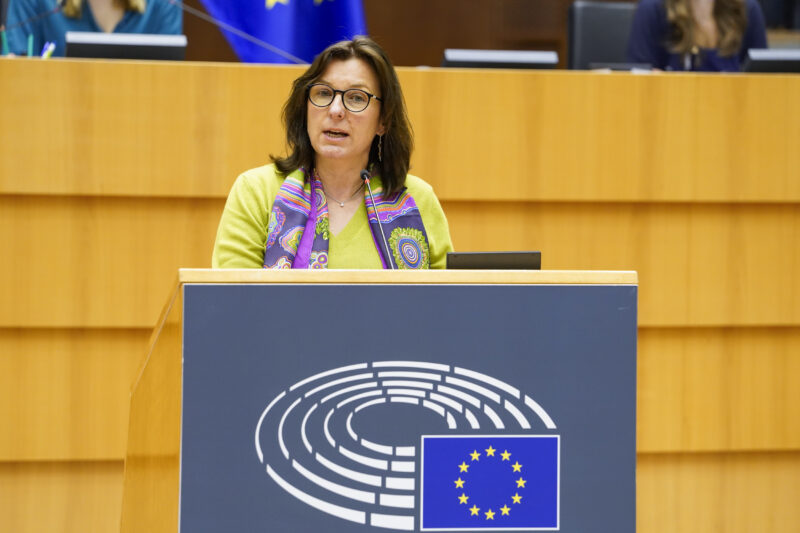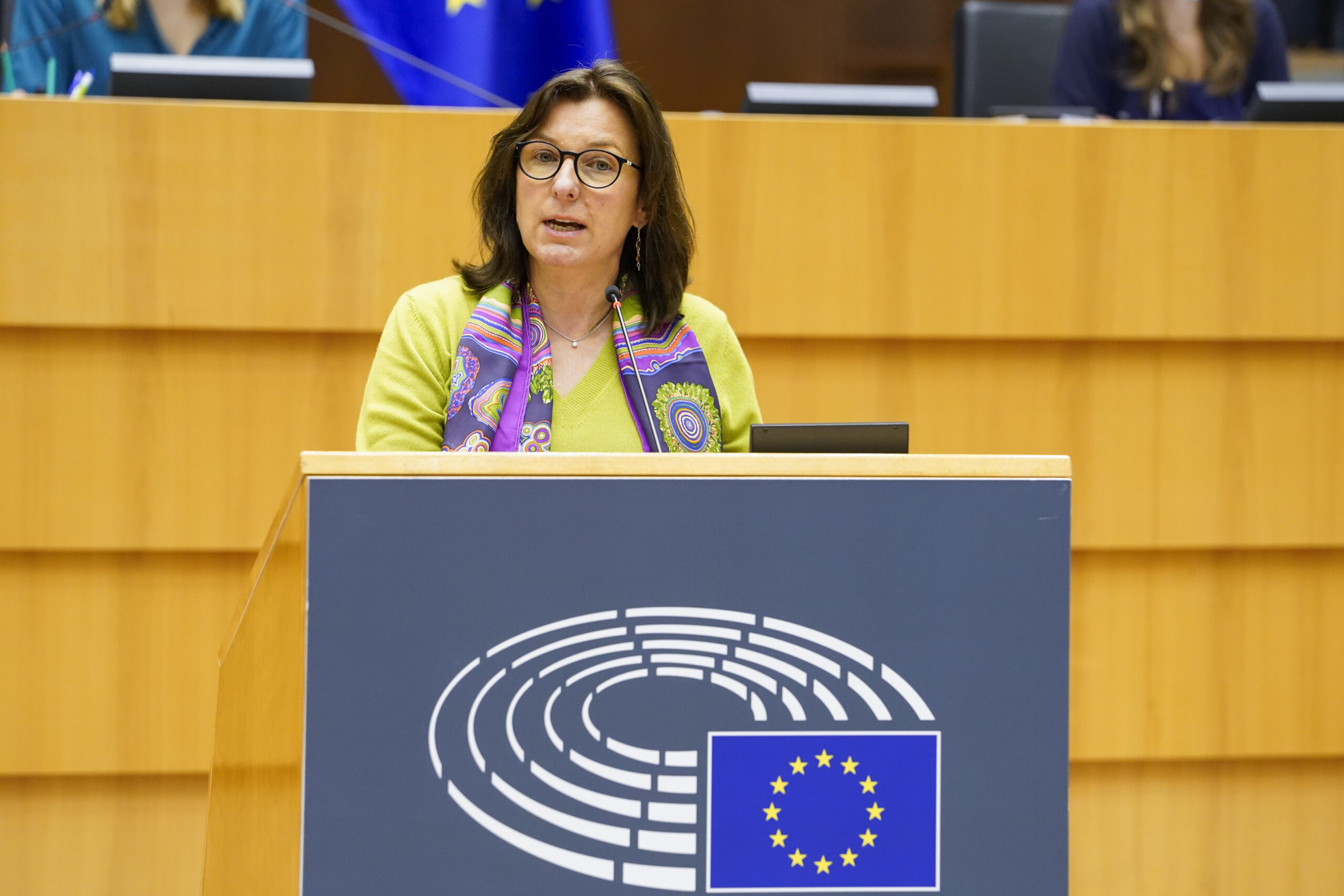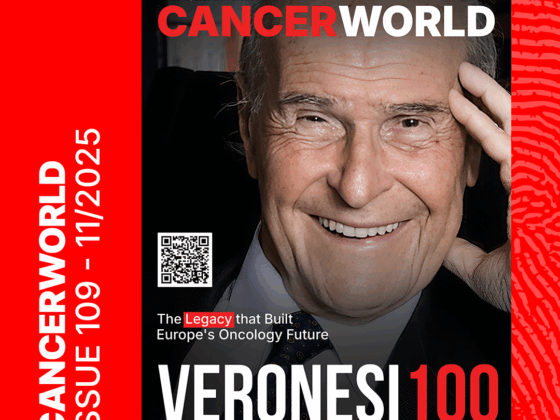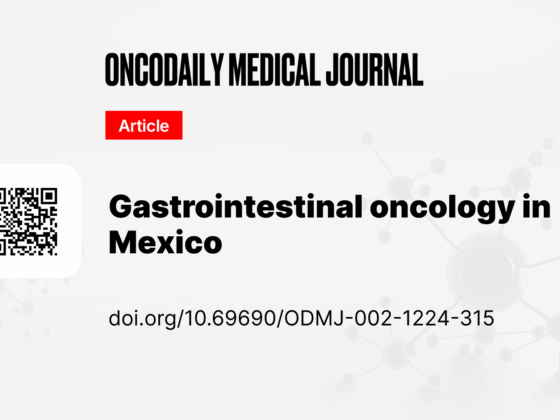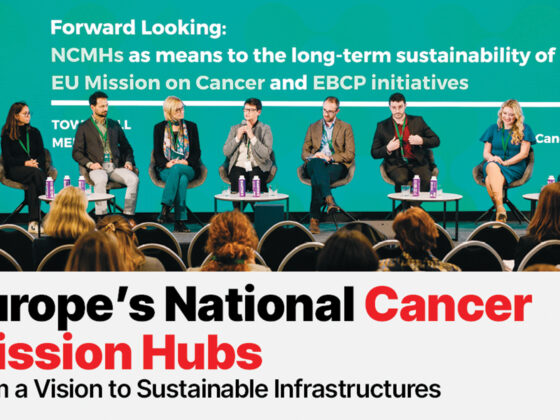Since joining the European Parliament in 2018, Tilly Metz has emerged as one of the most prominent voices in European health and cancer policy. Representing Luxembourg for the Greens/EFA group, she has played a central role in advancing the EU’s agenda on cancer prevention, patient rights, and equitable access to care. In 2024, she was named among OncoDaily’s “100 Influential Women in Oncology: Key Opinion Leaders to Follow on Social Media”, recognising her advocacy for cancer patients, mental health, and rare disease communities. Earlier this year, she was ranked third in the “EU Parliamentary Influence Index 2025” by Burson, underscoring her growing impact on EU policy and public health.
We at CancerWorld were honoured to sit down with Tilly Metz to discuss some of the most pressing and forward-looking questions in cancer care and policy, from prevention and research to patient equality and the future of Europe’s Beating Cancer Plan.
The full interview follows below.
The Politics of Cancer Prevention
MEP Metz, you’ve been a strong voice for health and cancer policy in the European Parliament. Looking back, what experiences most shaped this perspective, and how do they guide your priorities today?
Every 9 seconds, someone in the EU hears the words: “You have cancer.” It’s hard to find anyone who hasn’t been affected, whether directly or through a loved one. For me, the real question isn’t why I prioritise health and cancer, but rather how some policymakers still don’t.
What drives me is the knowledge that we can act. We’ve made progress in treating cancer, but prevention is still lagging behind, despite the tools already at our disposal. That includes tackling environmental risks, banning harmful substances, and advocating for healthier, more sustainable lifestyles. We have a clear opportunity and responsibility to act.
As we move from planning to implementation, what policy tools at EU level are most important to accelerate progress?
Proactive EU health measures, also on prevention.
That includes regulations to reduce the main risk factors: from tobacco and alcohol to harmful chemicals. We need to create healthier environments that support better lifestyles. The shift to sustainable agriculture and industry is also crucial because human and environmental health are fundamentally connected.
Joint EU procurement is another key tool, which helps ensure access to affordable, high-quality treatment for all patients, regardless of where they live. Cancer treatments can be expensive, that is why EU action to help ensure affordability is necessary.
HPV Elimination: Science, Trust, and Political Will
Vaccination and screening remain the core pillars of prevention. Based on the latest data, including ECDC monitoring and the HPV Elimination Atlas, what trends concern you most, and where do you see reasons for optimism?
There’s still a real need to strengthen public awareness. Campaigns that encourage healthier habits and reduce exposure to risk factors, such as pollution, tobacco and unhealthy diets, are essential. Of course, accompanied by adequate legislation.
At the same time, we’re seeing positive developments. Many Member States are making significant progress on HPV vaccination and screening coverage. The trends are encouraging, but not consistent enough across Europe. We need to close the gaps and accelerate progress.
Beyond infrastructure and funding, how can policymakers and civil society tackle misinformation and cultural barriers that prevent some communities from embracing HPV prevention?
We need committed and courageous policymakers, willing to stand up for the truth, for facts, for science, and for the public good, even when it’s politically inconvenient.
We should follow the example of people like Véronique Trillet-Lenoir, who stood firm in the face of misinformation and put public health and people first.
For example, on HPV, the facts are crystal clear:
- Infection is common;
- Most infections resolve naturally without causing harm;
- A few persistent infections can lead to cancer;
- HPV vaccination can prevent those cancers.
The only enduring truth is that everything is connected, especially when it comes to cancer: human health and planetary health are inseparable.
We have the science. It just needs to be communicated clearly and consistently, especially to the communities where access and trust are lacking.
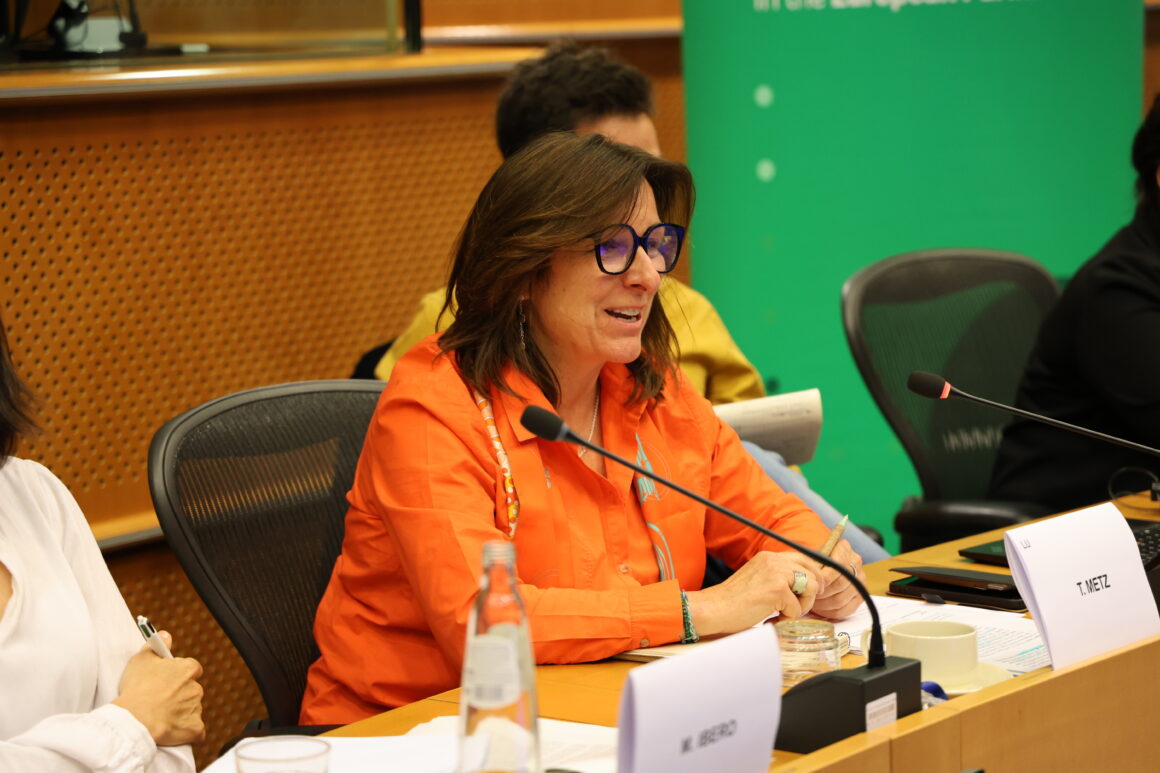
Europe’s Beating Cancer Plan has set ambitious goals, but sustaining political momentum is always a challenge. How can we ensure HPV elimination remains a priority across different EU institutions and political cycles?
We must make HPV elimination a cross-party and cross-institutional mission, one that stands above short-term politics.
For example, through working groups with representatives from different political families, ensuring continuity even when political cycles shift, such as the MEPs Against Cancer Interest Group or the Intergroup on Cancer and Rare Diseases in the European Parliament.
Building a Fair, Patient-Centred Approach to Cancer Prevention, Treatment, and Survivorship
What role do you see for patient advocacy networks in holding governments accountable for progress towards elimination targets?
Patient organisations play a critical role, not only by raising awareness, but by holding governments accountable.
They keep political pressure alive by reminding us all of the consequences of political inaction. Whether it’s environmental exposure, dangerous substances in our food or water, or gaps in healthcare access.
Overall, advocacy networks help ensure that these issues stay on the agenda.
Beyond HPV, you have been active in shaping wider cancer policy at the EU level. Which initiatives are you currently championing that you would like our readers to know about?
I’m proud to be a Vice-Chair of the MEPs Against Cancer (MAC) Interest Group, founded in 2005.
We focus on three pillars:
- Preventing cancer before it starts;
- Improving access to high-quality treatments;
- Supporting life after cancer, by ensuring survivors’ rights and wellbeing are fully respected.
I also launched an intergroup on Cancer and Rare Diseases with my fellow MEPs. Finally, I was appointed a shadow rapporteur on the SANT Committee report on the implementation of the European’s Beating Cancer Plan.
Cancer inequalities remain a pressing issue across Europe. How can the EU better integrate equity into all aspects of cancer policy, prevention, treatment, and survivorship?
Equity must be at the heart of everything we do.
That means ensuring a better and fairer access to screening, treatment, and support services, especially for marginalised or underserved communities. No one should be denied care because of where they live or what they can afford.
It also means guaranteeing affordable medicines.
And we must take a holistic approach: health equity, social justice, and environmental protection are all interconnected.
What is your key message to healthcare professionals, decision-makers, and patients in the fight against cancer?
The solutions are within reach, but we need political will and financial commitment to make them reality.
We must act on all three fronts:
- Prevention: by regulating tobacco, alcohol, unhealthy foods, and harmful products, and by addressing environmental pollution.
- Treatment: by ensuring equal access to world-class cancer centres and affordable medicines, and by harmonising care standards through training for healthcare professionals.
- Survivorship: by defending patients’ rights in the workplace and society, and offering suited support services.
Looking ahead, what does success look like for you, both at the European level in reaching 2030 goals such as HPV elimination, and more personally, in terms of the impact you hope to make during your current term in the European Parliament?
Reaching the targets we have set.
Helping push prevention higher on the political agenda.
Contributing to a healthier and fairer Europe.
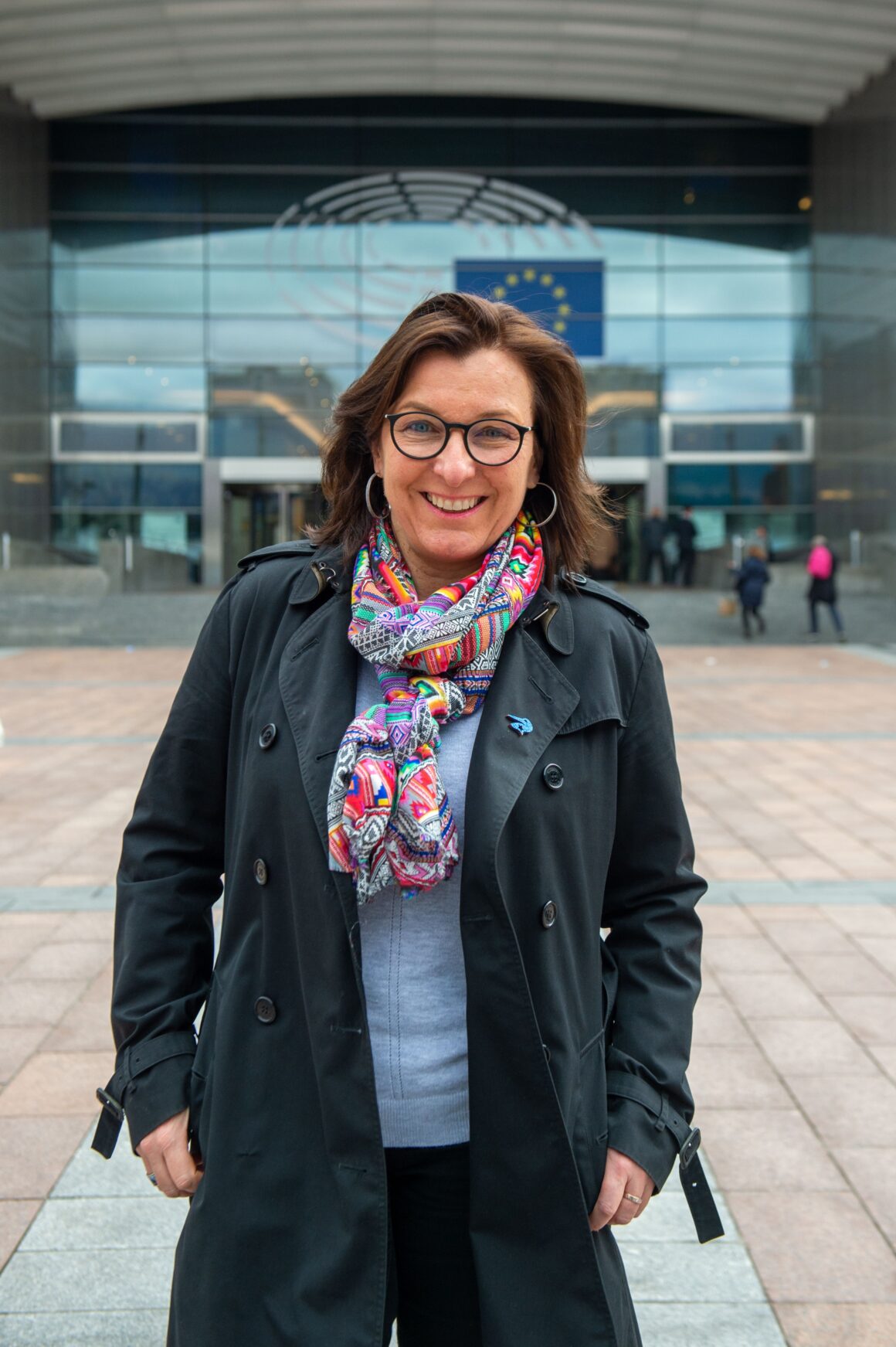
Tilly Metz embodies a new generation of European health leadership, one that unites science, compassion, and political resolve. Her work reminds us that Europe’s fight against cancer is as much a moral and political mission as a medical one, and that true progress depends on the collective choices we make long before diagnosis.

